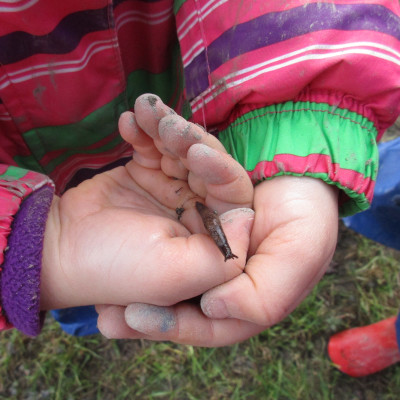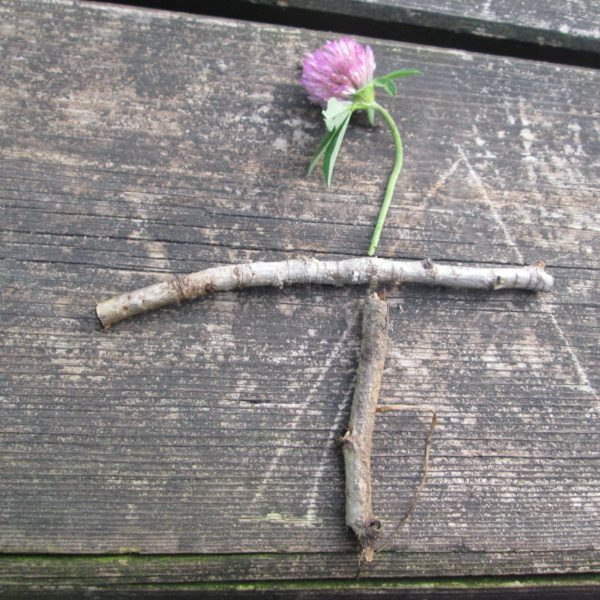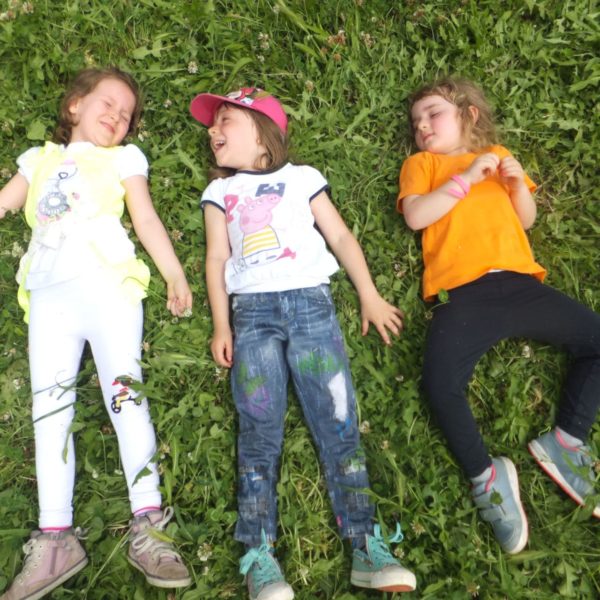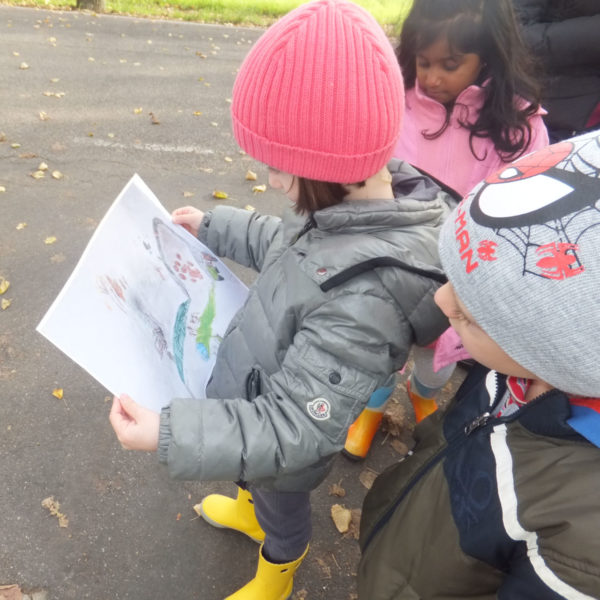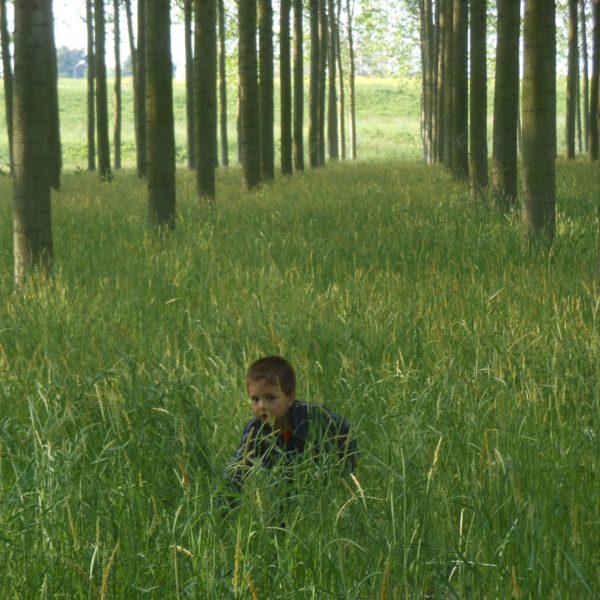Hello, my name is ANJA GREBE. I have been working in forest kindergartens near Frankfurt am Main for almost 20 years. More and more forest kindergartens are emerging in Germany. It is a trend with us. In my region alone, five forest kindergartens have opened in the past 5 years.
But what is special about the forest kindergartens? Why is nature so important for the children?
Nature promotes children's ability to move physically: they learn to climb and to balance, they learn to cope with uneven terrain, they learn to walk on inclined planes. Their body control grows day by day. Even fine motor skills are not neglected when children can work on nature with tools and scissors, with saws and hammers.
Nature offers a variety of stimuli and incentives for children. Every child looks for its own challenges in nature. It researches, it experiments, it shapes. It is experienced in its physical movement. It feels its whole body. The child literally trains its abilities in nature: how high can it climb, how deep can it jump. It goes step by step and tries to gradually expand its limits.
It is important that the children play with what they find in nature. These are not plastic toys, plastic building blocks or table games that only have a limited functionality. What the children find in nature has an open functionality. The children give things their own meaning: a stick becomes a fishing rod or a sword or is used to build a tipi, or is used as a drawing pen to paint on sand. The children's imagination is required.
Children give the found material their own definition. They comment on what they are doing. They talk to each other. They negotiate their game linguistically together. Language development thus happens almost incidentally.
Children want to face the challenges of nature. For this it is necessary that they get the help of the other children. They cannot carry a large tribe on their own, but with the help of their friends it can be done. So our forest children have a very positive social behavior. They help each other, they advise each other. They stand for each other.
By spending a lot of time outdoors, the child trains its immune system. Its body learns how to deal with cold, heat and wet weather. Our children are significantly more stable in health than the children in the regular kindergartens. And when they are sick, the course of the disease is much more moderate.
